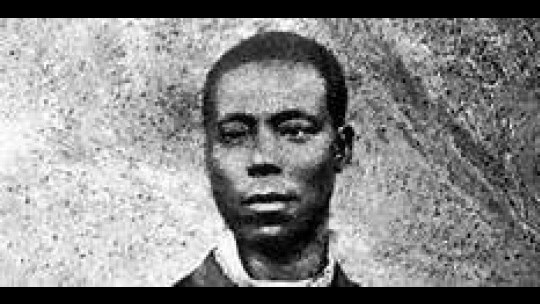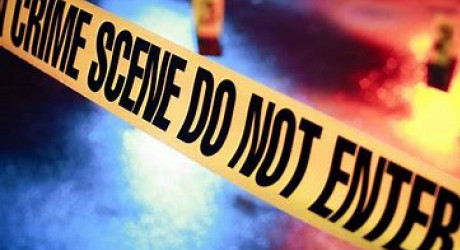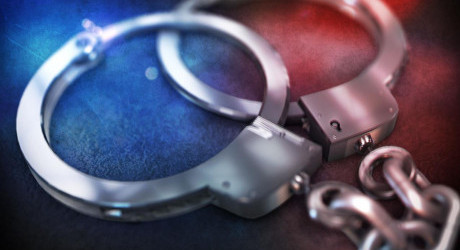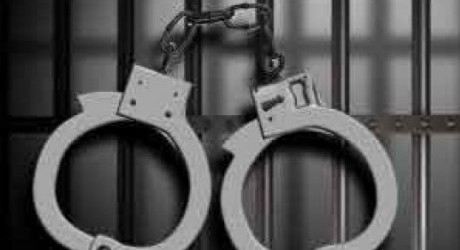By Earl Moxam
Jamaicans are two years away from commemorating the 150th anniversary of the Morant Bay Rebellion of October 1865, but already there are the beginnings of a push for amends to be made for the atrocities committed by an uncaring colonial administration, headed by the notorious Governor John Eyre.
Professor Verne Shepherd a historian based at the University of the West Indies, Mona and Chair of the National Commission on Reparations in Jamaica, wants the society to be informed and sensitized about the importance of pressing for a full accounting for these wrongs, in short order.
That awareness was in evidence, on a limited scale, last Friday, October 11, when scores of persons re-enacted the October 11, 1865 rebellion, of which Paul Bogle was a leading instigator, by marching from Stony Gut in St. Thomas to Paul Bogle Square in the parish, situated just east of Kingston, the country’s capital.
The 148th anniversary march was led by Ludlow Mathison, the current mayor of Morant Bay, said to be the great-great grandson of Paul Bogle. Bogle is now one of Jamaica's seven National Heroes.
The procession followed a candle light vigil that took place from 6pm Thursday to 6am Friday, in memory the hundreds of persons who died as a result of the rebellion. A wreath laying ceremony also took place at the burial site of those killed in the uprising and the crushing response of the state.
BIRTH OF THE REBELLION
What is known today as the Morant Bay Rebellion was born out of the frustrations of Jamaica’s first generation of ex-slaves and their children, who, bereft of the means of a viable livelihood, turned on an uncaring state.
There had been a string of instances in which, after Emancipation in 1838, the colonial government had systematically denied the ex-slaves basic rights, giving rise to growing frustration, setting the stage for a social explosion.
The Baptist Church, in Jamaica and in the United Kingdom, took up these issues on behalf of the Jamaican peasantry. Dr. Edward Underhill, Secretary of the Baptist Missionary Society of Great Britain, wrote a letter to Edward Cardwell, Secretary of State for the Colonies, in January, 1865, describing the dire situation of the poor people of Jamaica.
Residents of the parish of St. Ann also sent a letter to Queen Victoria, asking for Crown lands to cultivate, left as they were without lands on which to eke out an existence.
This hunger for land was “a critical trigger”, according Professor Verene Shepherd. She said land meant economic and political power, because men would qualify for the vote that way.
“This scared whites. Access to land was a symbol of freedom and a route to local black rule. That could not be allowed.”
With these and other considerations in mind, Governor John Eyre, having perused the contents of this letter, enclosed one of his own, rejecting their arguments and offering his own recommendations.
THE QUEEN’S RESPONSE
The Queen’s response, sent through Cardwell, gave the impression of an unfeeling and out of touch monarch, exhorting the peasants to apply industry and work harder, without giving due consideration to their genuine needs.
The letter read, in part: “…the prosperity of the labouring classes depends… on their working for wages, not uncertainly or capriciously, but steadily and continuously, at the time when their labour is wanted and for so long as it is wanted, and that if they would use this industry and thereby render the plantations productive , they would enable the planters to pay them higher wages for the same hours of work that are received by the best field labourers in this country…and they may be assured that it is from their own industry and prudence in availing themselves of the means of prospering that are before them, and not from any such schemes as have been suggested to them, that they must look for an improvement in their condition; and that Her Majesty will regard with interest and satisfaction their advancement through their own merits and efforts.”
BOGLE AND GORDON
It was in these circumstances that Paul Bogle, a black Baptist deacon, and George William Gordon, a wealthy politician of mixed race, a leader in the Baptist church, and a key supporter of Bogle, emerged.
The people’s anger came to a boil in October, 1865. A major catalyst for this was the trial of a black man who had been arrested for trespassing on an abandoned plantation. Two policemen were beaten by angry spectators during the trial at the courthouse in Morant Bay, which led to arrest warrants being issued for several persons, including Bogle.
On October 11, a group of protesters, led by Bogle, marched on the courthouse in Morant Bay. The local militia responded to the actions of the riled up crowd by firing on the group, killing seven of them in the process. That led to a strong response by the angry black protesters who killed 18 people, among them militia members and white officials.
The violence spread beyond the confines of Morant Bay in the ensuing days, with the peasants taking their revenge on the whites they encountered, killing at least two planters in the process.
The response of the Jamaican state, under Governor John Eyre, was strong and repressive. Ultimately, more than 400 members of the black population – men, women and children - were killed by soldiers, and an additional 354 were executed, among them, Paul Bogle, and George William Gordon, many on trumped up charges and without the benefit of a proper trial.
Paul Bogle and George William Gordon were made National Heroes by the Government of Jamaica, just over a century after the Morant Bay Rebellion.
While these two figures emerged in history from the tragic events of 1865, there were many others whose roles have not been given prominence, several women, among them.
“Women like Ellen Dawkins, Elizabeth Taylor, Judy Edwards were all there with the men and must be numbered among those who helped the protest movement” said Shepherd.
It has even been claimed by some researchers that a woman started the violence by throwing the first stone.
CHURCH ROLE IN PROTEST TODAY
Reflecting on the events of 1865, Reverend Karl Johnson, General Secretary of the Jamaica Baptist Union, believes there’s a need to “recapture that spirit of protest that characterised the church at critical points in our history and the history of other countries.”
While acknowledging the shortcomings of the Jamaican state in 2013, the Baptist minister believes the social situation today is “a totally different landscape.”
“We certainly can’t compare today’s state with a state that was predicated on something as dastardly as racism. It is not to say that the injustices of today are not injustice nevertheless but racism is certainly nothing to be compared with the lack of water and other amenities today.
Verene Shepherd remains “troubled” however by what she characterizes as “the lingering legacies of that period.” In that regard, she asserts that “anti-black racism masks as classism and manifests itself in the hierarchy of privilege and poverty” in Jamaica today.
Johnson did acknowledge that he could not let today’s Jamaican state “off the hook” in respect of its responsibilities to its citizens.
While rejecting the view that churches in Jamaica have been co-opted by the state, he concedes that “too many of us are too slow to interpret the signs of the times. I think the greater weakness is not seeing, not being able to interpret the signs of the times and reinterpret our role.”
Accordingly, he said, church leaders in Jamaica today “need a self-understanding of our role. We come across as being anaemic and almost being in collusion with the state and there is danger is that.”
REPARATIONS
There is a growing momentum to the call for reparations for the wrongs of slavery and colonialism in the Caribbean and, according to Verene Shepherd, “Morant Bay reminds us of the still unsettled business of reparation for colonial atrocities.”
There were three attempts from1866 to 1868 to prosecute Governor Eyre for murder and abuse of power and for his role in sanctioning the court martial and execution of Gordon, Bogle and others, she recalled.
“English grand juries refused to indict Eyre or convict his subordinates. We need to restart that case, for the memory of the atrocities at Morant Bay in 1865 is like an open wound, made worse by the memory that the Queen's (Victoria) response of 1865 and the Queen's (Elizabeth II) response to a petition of Rasta brethren in 2003 both disconnected the history of Britain's grand participation in the slave trade from its present government. We must do this for Bogle, Gordon, Webber, Edwards, Dawkins and all the other martyrs.”










 All feeds
All feeds







